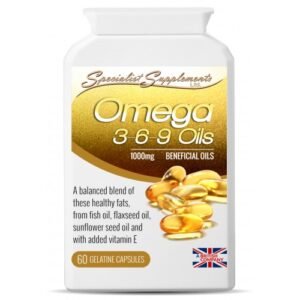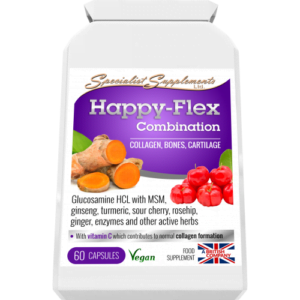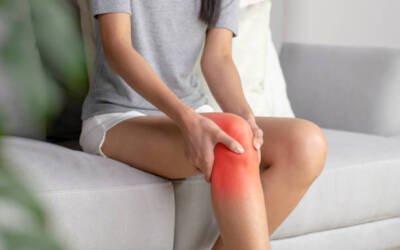Photo by ‘Susan G. Komen 3-Day’ on Unsplash.com
Say Goodbye to Joint Pain: Top Tips for Inflammation Relief After 40
Here are the Top Tips for Inflamation and Joint Pain which are common issues that many people experience as they age, particularly after the age of 40. These conditions can significantly impact a person’s quality of life and ability to perform daily activities. Understanding the causes of joint pain and inflammation, as well as effective strategies for managing them, is crucial for maintaining joint health and overall well-being.
Understanding Joint Pain and Inflammation
Joint pain refers to discomfort, soreness, or aching in any of the body’s joints. It can be caused by a variety of factors, including injury, overuse, arthritis, or other underlying medical conditions. Inflammation, on the other hand, is the body’s natural response to injury or infection. It involves the release of chemicals that cause blood vessels to widen and increase blood flow to the affected area. While inflammation is a necessary part of the healing process, chronic inflammation can lead to joint damage and pain.
Common Causes of Joint Pain After 40
There are several common causes of joint pain after the age of 40. One factor is age-related changes in the body. As we get older, the cartilage that cushions our joints begins to wear down, leading to increased friction and discomfort. Additionally, arthritis and other joint diseases become more prevalent with age. Osteoarthritis, in particular, is a degenerative joint disease that commonly affects older adults. Overuse and injury can also contribute to joint pain, especially if repetitive motions or excessive strain are involved. Finally, lifestyle factors such as obesity, poor nutrition, and lack of exercise can increase the risk of joint pain and inflammation.
The Importance of a Healthy Diet in Reducing Inflammation
A healthy diet plays a crucial role in reducing inflammation and promoting joint health. Certain foods can promote inflammation in the body, such as processed foods high in sugar and unhealthy fats. On the other hand, a diet rich in fruits, vegetables, whole grains, lean proteins, and healthy fats can help reduce inflammation. Foods that are particularly beneficial for reducing inflammation include fatty fish like salmon and sardines, leafy greens, berries, nuts, and seeds. Following an anti-inflammatory diet can not only help manage joint pain but also improve overall health and well-being.
The Role of Exercise in Joint Pain Management
Regular exercise is essential for maintaining joint health and managing joint pain. Low-impact exercises such as swimming, cycling, and walking can help strengthen the muscles around the joints, improve flexibility, and reduce inflammation. Exercise also promotes the release of endorphins, which are natural painkillers that can help alleviate joint discomfort. It is important to choose exercises that are suitable for your specific condition and to start slowly to avoid exacerbating joint pain. Consulting with a healthcare professional or a physical therapist can provide guidance on the best exercises for your individual needs.
Natural Supplements for Inflammation Relief
In addition to a healthy diet and exercise, natural supplements can also be beneficial in reducing inflammation and managing joint pain. Some supplements that have been found to have anti-inflammatory properties include omega-3 fatty acids, turmeric, ginger, and green tea extract. However, it is important to note that not all supplements are created equal, and their effectiveness may vary from person to person. It is recommended to consult with a healthcare professional before starting any new supplement regimen to ensure safety and effectiveness.
The Benefits of Massage Therapy for Joint Pain
Massage therapy can be a valuable tool in reducing inflammation and relieving joint pain. Massage helps increase blood flow to the affected area, which can promote healing and reduce inflammation. Different types of massage therapy may be beneficial for joint pain, such as Swedish massage, deep tissue massage, or myofascial release. It is important to find a qualified massage therapist who has experience working with individuals with joint pain to ensure the best results.
Mind-Body Techniques for Managing Joint Pain
The mind-body connection plays a significant role in managing joint pain. Techniques such as meditation, deep breathing exercises, and yoga can help reduce stress and anxiety, which can contribute to increased inflammation and joint pain. These practices promote relaxation and mindfulness, which can help individuals better cope with their pain and improve their overall well-being.
The Importance of Proper Posture in Joint Health
Proper posture is crucial for maintaining joint health and preventing unnecessary strain on the joints. Poor posture can lead to misalignment, increased pressure on the joints, and muscle imbalances. It is important to be mindful of your posture throughout the day, whether sitting, standing, or engaging in physical activities. Simple tips for improving posture include sitting up straight, keeping the shoulders back and relaxed, and avoiding prolonged periods of sitting or standing.
How to Choose the Right Footwear for Joint Pain Relief
The footwear we choose can have a significant impact on joint health. Shoes that provide proper support and cushioning can help reduce stress on the joints and alleviate joint pain. When choosing footwear, it is important to look for shoes that fit well, have good arch support, and provide adequate shock absorption. Orthotic inserts can also be beneficial for individuals with specific foot or gait issues.
The Benefits of Acupuncture for Joint Pain Relief
Acupuncture is an ancient Chinese practice that involves inserting thin needles into specific points on the body to promote healing and relieve pain. Acupuncture has been found to have anti-inflammatory effects and can help reduce joint pain. It is important to find a qualified acupuncturist who has experience working with individuals with joint pain to ensure safety and effectiveness.
When to Seek Medical Attention for Joint Pain
While many cases of joint pain can be managed with lifestyle changes and natural remedies, there are times when medical attention is necessary. Signs that joint pain requires medical attention include severe pain, swelling, redness, warmth around the joint, difficulty moving the joint, or if the pain persists for an extended period. Medical treatments for joint pain may include medications, physical therapy, injections, or in severe cases, surgery. It is important to consult with a healthcare professional to determine the best course of action for your specific condition.
In conclusion, joint pain and inflammation are common issues that many people experience after the age of 40. Understanding the causes of joint pain and inflammation and implementing effective strategies for managing them is crucial for maintaining joint health and overall well-being. A healthy diet, regular exercise, natural supplements, massage therapy, mind-body techniques, proper posture, appropriate footwear, acupuncture, and knowing when to seek medical attention are all important factors to consider in managing joint pain and inflammation. By taking proactive steps to care for your joints, you can reduce pain and improve your quality of life.
Best Supplements for Inflamation and Joint Pain
READ RELATED ARTICLES









0 Comments